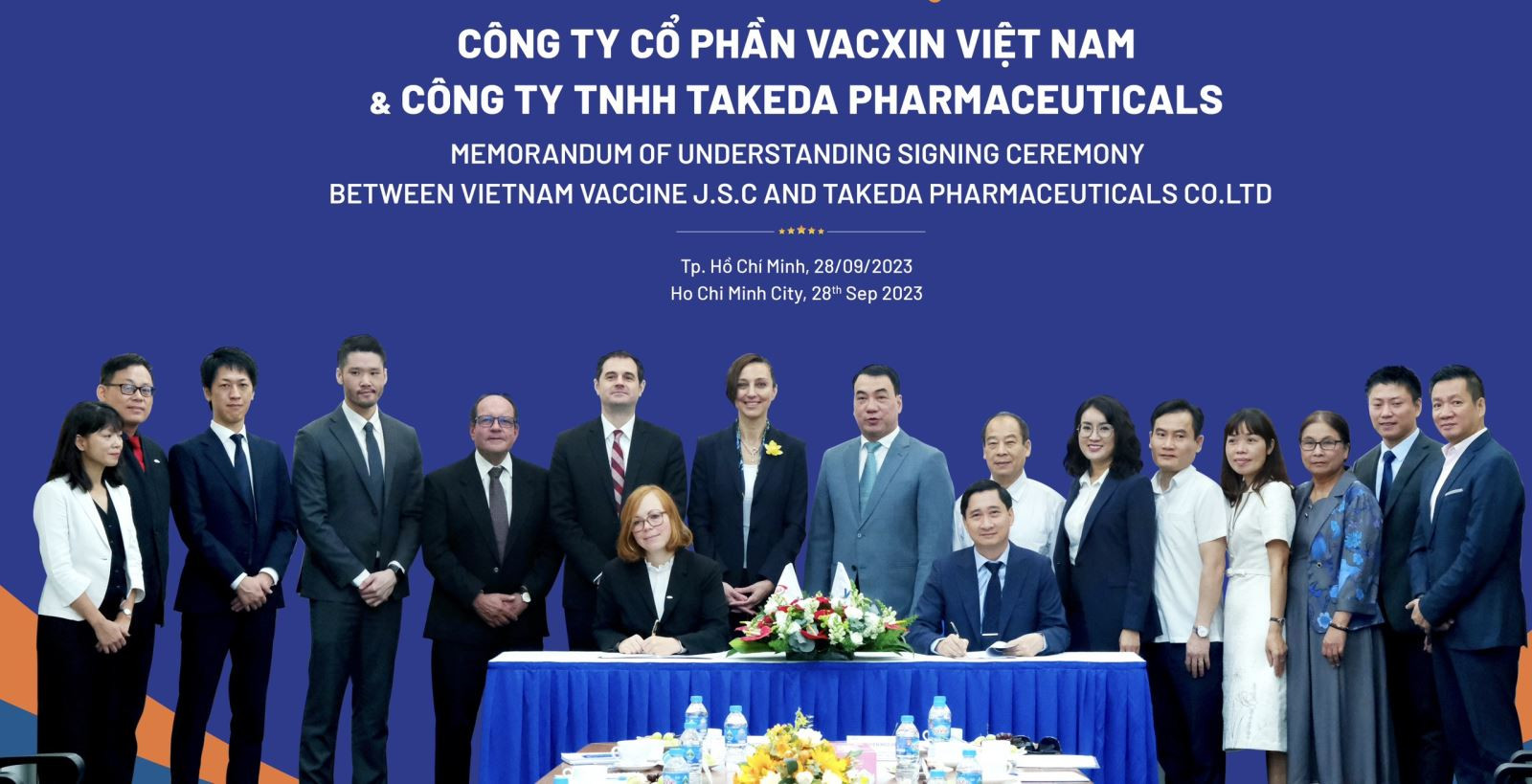Takeda's dengue fever vaccine (Japan) has been licensed for use in more than 30 countries (including the European Union, the United Kingdom, Argentina and countries with similar dengue epidemic situations to Vietnam such as Indonesia, Brazil, Thailand) and is expected to be introduced to Vietnam.
On September 28, in Ho Chi Minh City, the VNVC Vaccination Center System and Takeda Pharmaceuticals Co., Ltd. (abbreviated as Takeda, a member of Takeda Group, Japan) signed a memorandum of understanding on strategic cooperation with the goal of promoting the introduction of dengue fever prevention measures in Vietnam.

Dr. Nguyen Ngo Quang, Deputy Director of the Department of Science, Technology and Training (Ministry of Health) highly appreciated the cooperation between Takeda and the VNVC Vaccination System, expecting to soon bring opportunities to access and apply solutions to prevent dengue fever; at the same time, hoping that Vietnamese people will have access to dengue fever vaccine as soon as possible.
At the signing ceremony, the two sides agreed to implement many important activities, affirming the sustainable development strategy with the goal of training, scientific research... to promote awareness and improve professional knowledge for medical staff on measures to prevent dengue fever, including dengue fever vaccine.
This is the first time Takeda has signed a strategic cooperation agreement with a leading vaccination unit in Vietnam, affirming its desire for comprehensive, long-term cooperation in healthcare in many fields in a country with more than 100 million people, rapidly developing economy and the need to improve the quality of healthcare services.
After the signing ceremony, Takeda cooperated with the Pasteur Institute of Ho Chi Minh City to organize a workshop on “Orientations and solutions to improve the effectiveness of dengue fever prevention and control in Vietnam”. This is an important event in a series of activities taking place within the framework of the 50th anniversary of the establishment of diplomatic relations between Vietnam and Japan.
With many years of experience working in the field of preventive medicine and vaccination, Associate Professor, Dr. Tran Dac Phu, former Director of the Department of Preventive Medicine, Senior Advisor to the Vietnam Public Health Emergency Response Center, said that he has witnessed many outbreaks and deaths caused by dengue fever, so he understands better than anyone the role of vaccines in preventing many infectious diseases. Hopefully, Vietnam will soon have a dengue fever vaccine, helping to reduce the number of cases and deaths caused by the disease, contributing to the sustainable fight against this epidemic in Vietnam.
“I hope that today's signing ceremony between VNVC and Takeda can bring about successful results and we can soon bring dengue fever vaccine to Vietnam and of course the vaccine must meet the standards and requirements for effectiveness and safety to be brought to Vietnam,” said Associate Professor, Dr. Tran Dac Phu.
It is known that the test results show that Takeda's dengue vaccine, TAK-003 (registered trade name QDENGA) can create immune responses at different levels against all four strains of dengue virus circulating in the world, helping to prevent disease and reduce the possibility of hospitalization in people with dengue fever.
According to the European Medicines Agency (EMA), the agency that licenses vaccines in the European Union, the QDENGA vaccine has been approved for use in people aged 4 years and older, regardless of whether they have been previously infected or not.
According to WHO, Vietnam is one of the countries with the highest number of dengue fever cases, with an estimated 200,000 cases per year. The number of cases is expected to increase annually due to climate change.
Currently, there is no specific treatment for dengue fever other than reducing symptoms and no vaccine in Vietnam. Meanwhile, measures to control the source of infection still face many difficulties due to limited awareness of disease prevention and control among people, unstable prevention resources, large residential areas that are difficult to control, handle and monitor...
According to Tin Tuc newspaper